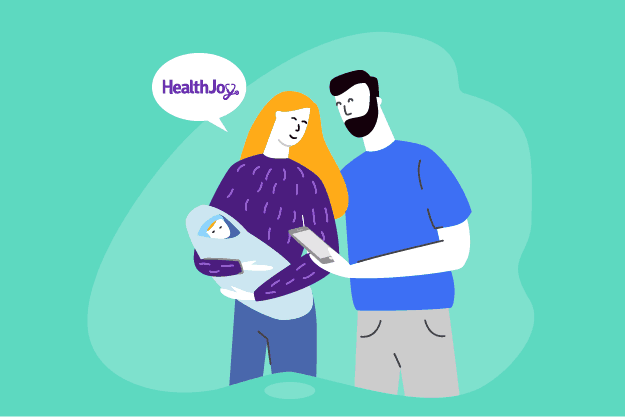Replace Your Benefits Booklet With This Alternative
As you review your benefits education strategy, what old standouts seem too important to replace? Your strategy probably still includes favorites...
Connected Navigation Platform
Guiding to high-value care
Behavioral Health
Foster a mentally healthy workplace
EAP
Supporting holistic wellbeing
Virtual MSK Care
Reimagining musculoskeletal care
Virtual Primary Care
Powered by smart navigation
Surgery Centers of Excellence
Best-in-class surgical outcomes
Virtual Urgent Care
Immediate care, any hour of the day
Chronic Care
A new approach to chronic care
Integrations
Flexible to any strategy
As you consider how best to engage employees this open enrollment season, may we suggest you ditch the benefits booklet?
Burn it.
Flush it.
Use it to wrap a gift.
Just don’t rely on a booklet to handle your benefits communication. Because the benefits booklet is a terrible employee. We want to make the case they’re little more than a pile of useless paper most likely to be shoved in a drawer—if anyone picks them up at all. It’s as useful as the yellow pages… when’s the last time you used one of those?
In our competitive labor market, it’s more important than ever that employees see the value in their benefits. Benefits are second only to payroll in terms of your company’s employee spending. No matter how much time you spend putting together a killer benefits package, a confusing experience is sure to lead to low benefits satisfaction.
Here, we’ll share far more effective, efficient, and empathetic ways of communicating your benefits offerings during open enrollment and beyond.
In an HR Tech Weekly poll, 50% of employees reported they couldn’t access their benefits in the way they prefer. Guardian reported in its 2017 Workplace Benefits Survey that 3 in 5 millennial workers wish it were easier to understand and access their benefits.
Older generations are reflecting a similar mobile-first preference. An AARP study from 2016 found 73% of 50- to 59-year-olds own a smartphone. Most actually prefer smartphones as a way to access online information (read our post Why Baby Boomers are Flocking to Healthcare Apps for more).
It’s clear the outdated benefits booklet just isn’t cutting it anymore.
The Guardian survey reported that 77% of companies rated employee engagement as a top priority. If it’s also your goal, it’s a no-brainer to meet your employees where they’re used to seeing company messaging: in their inbox, Slack feed, or both.
Digital communications have a few advantages over paper pamphlets. For one thing, nothing gets lost. An email with benefit details or open enrollment dates might come at an inconvenient time, but an employee can bookmark the message for later reading. If you ever want to update a benefit off-cycle, it’s easy if its in digital form.
Where does a benefits booklet end up in the same scenarios? At best, shoved under a desk. At worst, in a trash can.
Digital communications are an effective way to keep employees engaged beyond open enrollment. On that note, let’s talk about how other strategies exceed the benefits booklet outside of OE.
If your employee engagement goals go beyond open enrollment (as we assume they do), how can you continue to bring them back to their benefits in February, March, and beyond?
Hint: the Benefits Booklet won’t get you there.
That’s because benefits booklets are a maze of complicated language, confusing details, and unclear points of contact. They’re so ineffective that employees will likely neglect to read them entirely. Instead, they’ll wait until they need their benefits, then make a hurried decision.
That usually spells high cost across the board and, ultimately, lowers employee satisfaction. So how do you stop the vicious cycle?
You guessed it: kill the benefits booklet.
Consider ways you can proactively help employees engage with benefits throughout the year. Perhaps a monthly email campaign, an intranet series, or paper posters are the answer.
We find that helping employees love and engage with their benefits beyond open enrollment is a matter of getting ahead—communicating benefits value before employees even need help.
Read our Employee Benefits Communication Guide for more.
The HealthJoy approach rolls all these strategies and more into one centralized benefits experience platform.
Our benefits wallet keeps each employee’s benefits, provider contacts, and account balances at their fingertips—and the top of their minds. Plan changes are communicated instead of being buried in a benefits booklet. If you ever update anything outside open enrollment, it can be communicated to thousands of people in an instant.
We’ve found this centralized experience helps push employees toward cost-cutting strategies like telemedicine, a benefit that’s trending even as its utilization drags (read Why telemedicine Use is skyrocketing for more). Merely stating that employees have a benefit isn’t enough—we need to help them keep it top-of-mind, year-round.
Finally, HealthJoy’s live concierges are always on hand to answer plan questions. They can determine whether a purchase is HSA eligible, whether their favorite doctor is in-network, and even find a less expensive MRI. Answers once buried in a maze of paperwork are now handled by our expert team with a few screen taps.
In reality, killing the benefits booklet is just a first step. Active communication drives employee engagement, and if we’ve learned anything from ineffective benefits booklets, it’s that a one-size-fits-all approach won’t work.

As you review your benefits education strategy, what old standouts seem too important to replace? Your strategy probably still includes favorites...

Benefits communication is notoriously tricky. Lunch and learns? Employees resent taking time out of a busy day. Long emails? They’re all too easy to...

With open enrollment winding down and new benefits rolling out to employees, your HR department is far from taking its foot off the gas. In fact,...